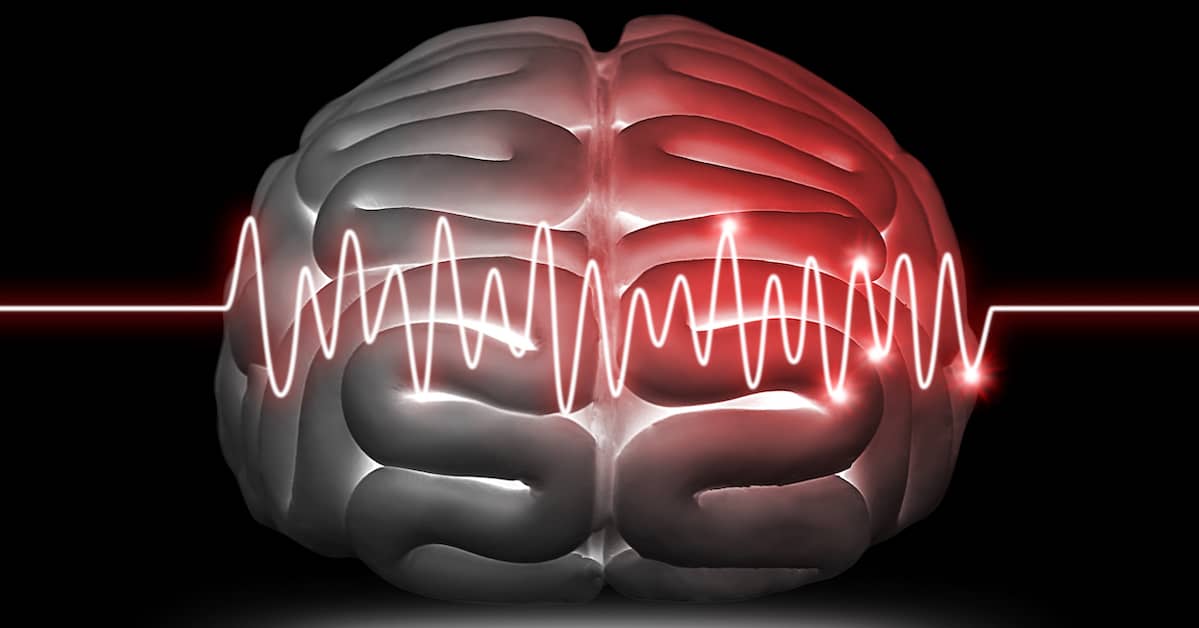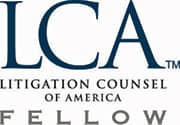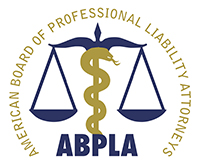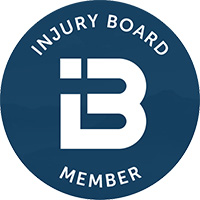
What Are the Symptoms of Traumatic Brain Injury?
Symptoms of traumatic brain injury can vary widely depending on the severity of the impact. Frighteningly, symptoms of brain injury are not always immediately obvious, making it very important that you seek medical attention when you are involved in an accident that involves head trauma.
Traumatic brain injuries are alarmingly prevalent in the United States. Approximately 2.5 million people suffer from brain injuries every year. Tragically, these injuries often have life-altering consequences for victims and their families—including sustaining permanent damage. The lifetime economic, physical, and emotional consequences of these injuries demand the attention of an experienced brain injury lawyer.
At Mandell, Boisclair & Mandell, we represent injured people in Rhode Island with compassion, strength, and expert knowledge. If you or a loved one are experiencing symptoms of traumatic brain injury, our skilled team can guide you through the complexities of the legal system and fight for the compensation you deserve.
To schedule your FREE consultation at our Providence office, please call Mandell, Boisclair & Mandell at (401) 273-8330 today. We serve victims of serious injury throughout Rhode Island.
Symptoms of Traumatic Brain Injury
There are three types of traumatic brain injury: mild, moderate, and severe. Symptoms of traumatic brain injury will vary depending on which of these types you have sustained. As a general rule, you should seek medical attention any time your head is violently struck, even if there are no immediate signs of damage.
Symptoms of Concussion (Mild Traumatic Brain Injury)
Concussions are the mildest form of traumatic brain injury. Symptoms of concussion may include:
- Headache
- Confusion
- Dizziness
- Nausea
- Temporary loss of consciousness
- Ringing in the ears
- Slurred speech
Symptoms of a concussion typically last for 14 to 21 days. However, when left untreated, symptoms can last substantially longer.
Symptoms of Moderate Traumatic Brain Injury
When the brain injury escalates to a moderate level, the symptoms of traumatic brain injury become more severe. These may include the symptoms of a concussion along with:
- Persistent headaches
- Partial or total loss of vision
- Fatigue or drowsiness
- Memory loss
- Behavioral changes
- Difficulty speaking and understanding speech
The symptoms of a moderate traumatic brain injury can last for a few days to a few weeks but, as with other types of brain injury, may last for several months. In some cases, these symptoms are a permanent consequence of brain injury.
Symptoms of Severe Traumatic Brain Injury
Severe traumatic brain injuries are the most critical. In addition to all of the symptoms related to mild and moderate brain injuries, severe TBI may result in symptoms including:
- Prolonged unconsciousness or coma
- Loss of coordination
- Seizures
- Numbness in extremities
- Profound confusion
It can take six or more months to recover from a severe traumatic brain injury. Unfortunately, symptoms of severe TBI may be permanent.
Delayed Traumatic Brain Injury Symptoms
Symptoms of traumatic brain injury may not appear immediately. Delayed symptoms can manifest days or even weeks after the injury, making it very important to consult a healthcare provider as soon as is possible.
Delayed symptoms of TBI may include cognitive impairments, such as difficulty concentrating or remembering, as well as emotional changes like irritability or depression. Physical signs, such as persistent headaches, nausea, or sleep disturbances, may also develop over time.
The risks associated with delayed symptoms are significant. For example, failing to diagnose and treat a traumatic brain injury can result in a condition known as Second Impact Syndrome, a rare but life-threatening situation that can occur if a second brain injury is sustained before the first has healed completely. Delayed diagnosis also puts you at risk of developing long-term complications, like chronic traumatic encephalopathy (CTE), a degenerative brain disease associated with repeated head injuries.
If you have been in an accident and suspect that you may have suffered a brain injury, it’s essential to consult a healthcare professional for a thorough examination and appropriate treatment. Seeking timely medical care allows for early intervention, which can drastically affect the course of your recovery.
How is Traumatic Brain Injury Treated?
The appropriate treatment protocols for traumatic brain injury are influenced by the severity of the injury and the specific symptoms experienced. In many cases, this involves immediate treatment, ongoing care, and long-term rehabilitative efforts.
Immediate Treatment
For mild symptoms of traumatic brain injury, such as concussions, immediate treatment often involves rest and monitoring. Over-the-counter pain relievers may be prescribed to alleviate headaches. In many cases, taking it easy for a few weeks is sufficient for treating concussions.
Immediate treatment for moderate to severe traumatic brain injury serves to stabilize the patient’s condition and prevent further injury. This might involve oxygen supplementation, controlling blood pressure, and possibly conducting surgery to remove hematomas or relieve pressure inside the skull. In extreme cases, induced coma may be necessary to prevent additional damage.
Ongoing Care
Ongoing care for traumatic brain injury may include various medications to control symptoms such as seizures, muscle spasms, and depression. Anticoagulants may also be used to prevent blood clots. In addition, continuous medical monitoring through imaging tests like MRI and CT scans may be required to track the progression of brain healing and detect any complications.
Long-Term Rehabilitation
Long-term treatment for traumatic brain injury may include:
- Physical therapy to improve motor skills and overall physical functioning.
- Occupational therapy to regain the skills necessary for daily activities, such as cooking and bathing.
- Speech therapy to address communication issues and swallowing difficulties.
- Counseling and psychotherapy to assist with emotional and behavioral symptoms.
In severe cases, a multidisciplinary approach in specialized rehabilitation centers may be necessary for long-term treatment.
When facing the symptoms of traumatic brain injury, choosing the right legal and medical team can significantly impact the course of your recovery. At Mandell, Boisclair & Mandell, we understand the complexities of navigating insurance companies, medical institutions, and the legal system during these challenging times. Our commitment to your well-being goes beyond the courtroom, providing you with knowledgeable guidance and support throughout your recovery journey.
What Are the Lifetime Costs of Traumatic Brain Injury?
When you sustain a traumatic brain injury, costs may be both immediate and long-term. These can include:
- Direct Medical Costs
- Initial Hospitalization
- Follow-Up Appointments
- Medications
- Rehabilitation Services
- Indirect Costs
- Lost Wages and Earning Capacity
- Home Modifications
- Caregiver Expenses
Some brain injury survivors may need to change careers or require special education services as well. These will add to long-term costs.
In addition to the direct economic costs of traumatic brain injury, the intangible costs associated with reduced quality of life, including emotional and psychological tolls, can be a significant burden. These must be considered when calculating the long-term costs related to traumatic brain injury.
When facing the symptoms of traumatic brain injury, securing adequate compensation is critical for managing lifetime costs. The brain injury attorneys at Mandell, Boisclair & Mandell have decades of experience helping our clients get fair and full compensation following catastrophic injury. Reach out today for a complimentary case review and learn how we can help.
Mandell, Boisclair & Mandell Is Here for You
For close to fifty years, Mandell, Boisclair & Mandell has been navigating the hurdles that stand between victims and the compensation they deserve. Our results are unmatched in Rhode Island, and our attorneys are deeply involved in every case, ensuring you get the attention you deserve. True to our firm’s values of empathy, professionalism, and honesty, we work tirelessly for victims of serious injury, building solid cases that can be taken as far as is needed in our pursuit of justice—and all of this is done on a contingency basis. You only pay for our services after we have obtained a recovery for you.
If you or someone you know is experiencing symptoms of traumatic brain injury, don’t hesitate to contact Mandell, Boisclair & Mandell for a FREE consultation right away. We serve victims of serious injury—and their families—in Providence and all nearby areas of Rhode Island.





























